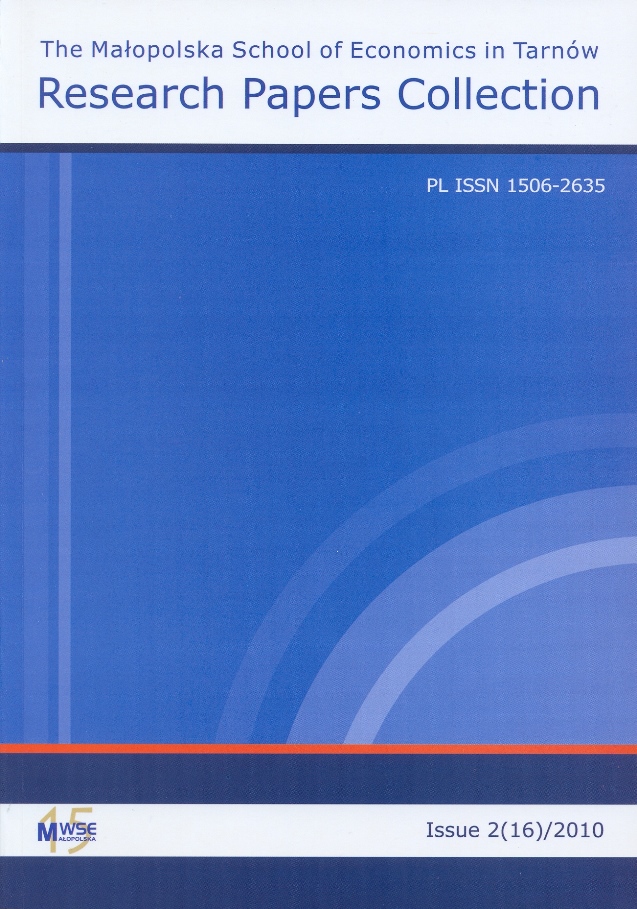Abstract
The article considers a culture as an important factor of economic growth. A culture is understood as the environment for social and economic performance. It’s presenting three theories which perceive a culture as an influential component for economic life. The starting point is the Francis Fukuyama’s point of view about the meaning of social trust. Then in that context it’s zooming on Mariano Grondona and Jacenty Siewierski theories.
References
Barro R., Mc Cleary R.M. 2003. Religion and economic growth. [online, accessed: 2010-07-31]. NBER Working Papers, 9682. Cambridge. Available from Internet: http://www.nber.org/papers/w9682.
View in Google Scholar
Fukuyama F. 1997. Zaufanie. Kapitał społeczny a droga do dobrobytu. Transl. by A. and L. Śliwa. Warszawa–Wrocław: Wydawnictwo Naukowe PWN. ISBN 83-01-12488-1.
View in Google Scholar
Grondona M. 2003. “Kulturowa typologia rozwoju gospodarczego”. In: Kultura ma znaczenie. Ed. L.E. Harrison, S.P. Huntington. Transl. by S. Dymczyk. Poznań: Wydawnictwo Zysk i S-ka. ISBN 83-7298-368-2.
View in Google Scholar
Jenks Ch. 1999. Kultura. Transl. by W. J. Burszta. Poznań: Wydawnictwo Zysk i S-ka. ISBN 83-7150-705-4.
View in Google Scholar
Siewierski J. et al. 2006. Socjologia gospodarki. Warszawa: Difin. ISBN 83-7251-670-7.
View in Google Scholar
Williamson O.E. 2000. “The new institutional economics: Taking stock, looking ahead”. Journal of Economic Literature, vol. 38.
View in Google Scholar
© Copyright by Małopolska School of Economics in Tarnów. The articles are available under the Creative Commons Attribution NonCommercial-NoDerivatives 4.0 International License


